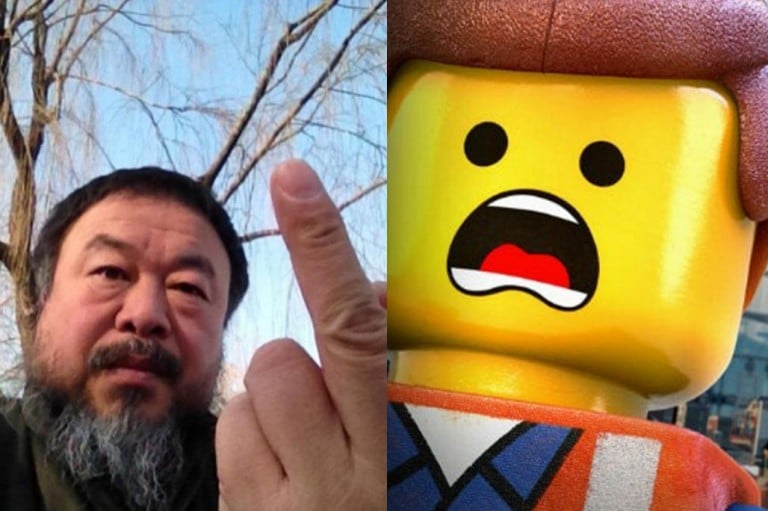Art & Exhibitions
Ai Weiwei Accuses Lego of Censorship and Discrimination Over Bulk Order Refusal
Meanwhile, the "Send Ai Weiwei some Lego" campaign is gaining traction.

Meanwhile, the "Send Ai Weiwei some Lego" campaign is gaining traction.

Henri Neuendorf


The artist accused Lego of trying to protect its Chinese business interests.
Photo: Jonathan Browning/Rex Features via the Guardian.
Ai Weiwei has accused Danish toymaker Lego of refusing to send him a bulk order of toy bricks for political reasons. The Chinese artist announced the news on Friday via his preferred medium: an Instagram post.
“In September Lego refused Ai Weiwei studio’s request for a bulk order of Legos to create artwork to be shown at the National Gallery of Victoria as ‘they cannot approve the use of Legos for political works,’” Ai’s post read.
The artist suggested that the refusal was based on Lego protecting its business interests in China, informing his Instagram readers that on “Oct 21, a British firm formally announced that it will open a Legoland in Shanghai as one of the many deals of the UK-China ‘Golden Era.’”
In the post, which coincided with the last day of President Xi Jinping’s UK state visit, the artist referred to David Cameron’s announcement of a “golden era” in relations between the two countries.
Lego denied that the refusal was based on the protection of its Chinese business venture, explaining that it sold its Legoland amusement parks division to the British company Merlin Entertainment ten years ago. However, the Guardian reported that the company is building a factory employing about 2,000 workers in China—which is due to open in 2017.
In another photo, posted on Instagram on Saturday and depicting Lego bricks in a toilet, the artist criticized the corporation’s “questionable values” and labelled the refusal to deliver the order of bricks “an act of censorship and discrimination.”
“Any individual person can naturally purchase or get access to Lego bricks in other ways to create their Lego projects if they desire to do so, but as a company, we choose to refrain from engaging in these activities—through for example bulk purchase,” Lego spokesman Roar Rude Trangbæk told the Guardian in response to the artist’s allegations. “In cases where we receive requests for donations or support for projects—such as the possibility of purchasing Lego bricks in large quantities—where we are made aware that there is a political context, we therefore kindly decline support,” he added.
Lego’s refusal has created a huge backlash among the huge international fan base of the Chinese artist. Supporters of the artist have been offering to donate their Legos en masse to the artist to help him complete his project in time for his Australian museum show. There’s even a newly-launched Facebook page called “Send Ai Weiwei some Lego“.
Ai has told his fans via Twitter that the donations are welcome and will be accepted:
Yes, I will find a way to accept. https://t.co/S7vW7hw76s
— Ai WeiWei (english) (@aiww_en) October 25, 2015
Interestingly, Ai is actually not new to the material. He previously used Lego on a massive scale at his Alcatraz exhibition, where he created portraits of political exiles using the bricks.
Lego is a popular medium with contemporary artists: Nathan Sawaya’s “The Art of the Brick” exhibition has traveled the world and Olafur Eliasson put the children’s toy to good use at the High Line in New York in May.